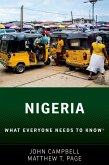For the past decade, Boko Haram has relentlessly terrorized northeastern Nigeria. Few if any explanations for the rise of this violent insurgent group look beyond its roots in worldwide jihadism and recent political conflicts in central Africa.
Searching for Boko Haram is the first book to examine the insurgency within the context of centuries, millennia even, of cultural change in the region. The book surveys the deep history of the lands south of Lake Chad, richly documented in archaeology and texts, to show how ancient natural and cultural events can aid in our understanding of Boko Haram's present agenda. The land's historical narrative stretches back five centuries, with cultural origins that plunge even deeper into the past. One important feature of this past is the phenomenon of frontiers and borderlands. In striking ways, Boko Haram resembles the frontier slave raiders and warlords who figure in precolonial and colonial writings on the southern Lake Chad Basin. Presently, these accounts are paralleled by the activity of smugglers, bandits (coupeurs de route--"road cutters"), and tax evaders. The borderlands of these countries are today places where the state often refuses to exercise its full authority because of the profits and opportunities illicit relationships afford state officials and bureaucrats. For the local community, Boko Haram's actions are readily understandable in terms of slave raids and borderlands. They are not mysterious and unprecedented eruptions of violence and savagery, but--as the book argues--recognizable phenomena within the contexts of local politics and history. Written from the perspective of an author who has worked in this part of Africa for more than thirty years,
Searching for Boko Haram provides vital historical context to the recent rise of this terroristic force, and counters misperceptions of their activities and of the region as a whole.
Dieser Download kann aus rechtlichen Gründen nur mit Rechnungsadresse in A, B, BG, CY, CZ, D, DK, EW, E, FIN, F, GR, HR, H, IRL, I, LT, L, LR, M, NL, PL, P, R, S, SLO, SK ausgeliefert werden.









